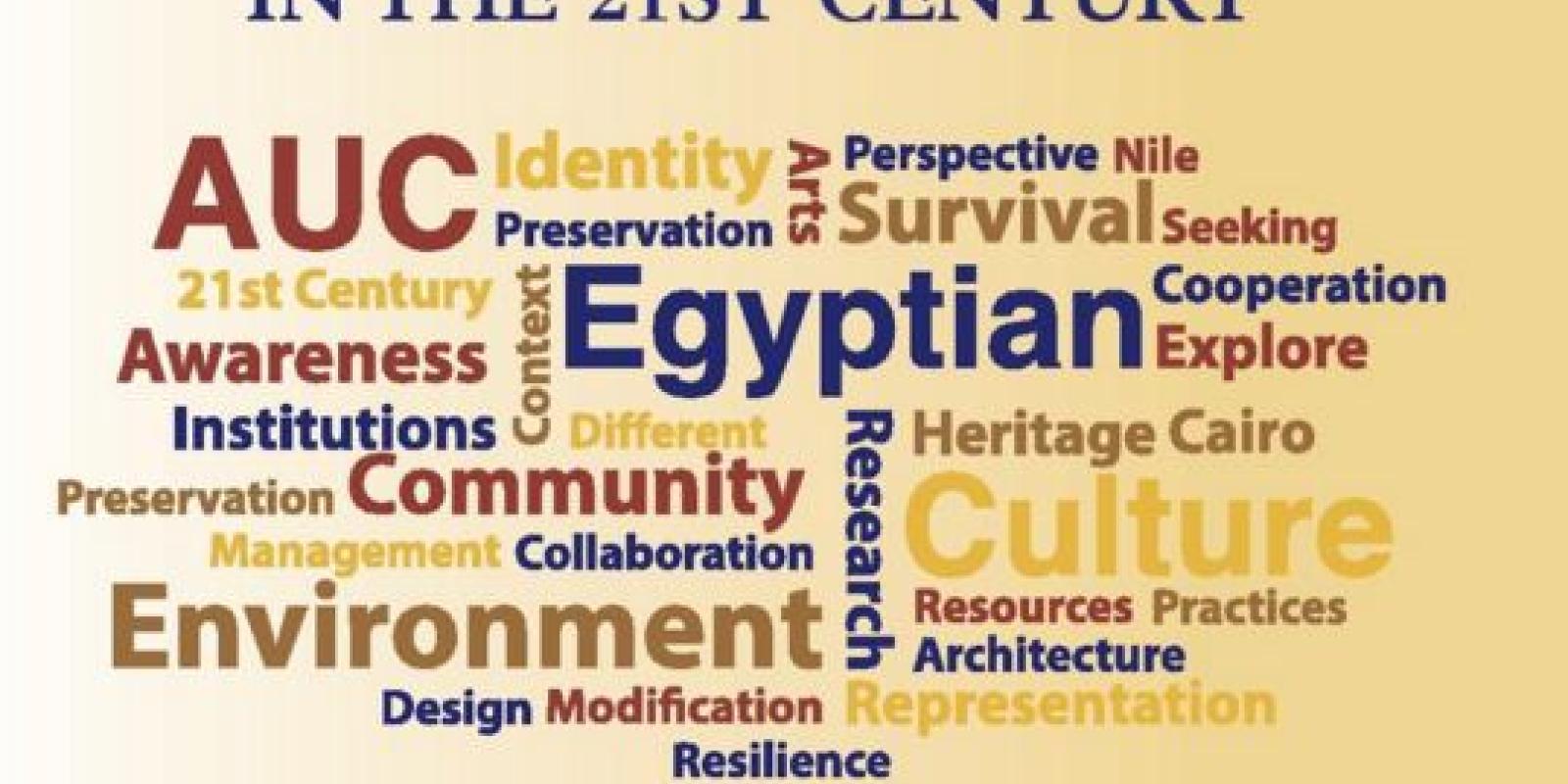
AUC’s 22nd Annual Research Conference: Cultural Survival in Egypt in the 21st Century
A University tradition for the past 22 years, the annual AUC Research Conference begins today.
This year, the two-day conference spotlights research and scholarship under the theme, Cultural Survival in Egypt in the 21st Century.
“This year’s theme highlights the many different ways Egyptians are adapting to challenges their society and culture face in the 21st century,” said Nathaniel Bowditch, dean of the School of Humanities and Social Science (HUSS), which is hosting the conference with the Research Institute for a Sustainable Environment (RISE). “These challenges include the globalization of knowledge, transformations in identity, economic upheavals, and threats posed by climate change and the degradation of natural resources. Over the course of the conference, we will examine these challenges and how they impact the lives of Egyptians today.”
A global phenomenon, cultural survival is important for Egypt, added Richard Tutwiler, director of RISE. “Cultural survival is a concept that’s recently emerged in academia predicting the extinction of indigenous cultures by globalization and the spread of capitalism,” explained Tuttwiler. “Though this concept is often associated with indigenous groups in sub-Saharan Africa and the Americas, we will look at how it also comes into play in the Egyptian context.”
Interdisciplinary Approach
According to Tutwiler, the diversity of perspectives is a key part of the conference this year. “This conference is interdisciplinary in nature, taking a holistic approach to research,” he explained. “New this year, the conference will integrate a variety of disciplines, examining cultural survival both on the global and local levels.”
The conference includes participants from a range of fields and disciplines, Tutwiler added. “We have participants joining us from all over AUC, including the four major academic schools, the Academy of Liberal Arts, Libraries and Learning Technologies, and University research centers like RISE,” he said. “We’ll have scholars from four other institutions, both in Egypt and abroad, sharing their research as well.”
The conference will open with a special keynote address by Tariq Tawfik, director of the Grand Egyptian Museum. The remainder of the conference will consist of four sessions, each addressing a different aspect of cultural survival in Egypt:
- Museums in Egypt: Tangible and Intangible Heritage- This session will discuss how museums form and reproduce cultural identity for Egyptians.
- Continuity and Change: Cultural Representations of Identity- This session will focus on popular culture and social practices, examining how they are transmitted into Egyptian identity.
- Cultural Heritage of the Built Environment- This session will explore how architecture and the physical formation of communities contribute to culture, values and identity.
- Community-Based Resource Management- This session will examine the role communities play in Egypt’s cultural survival in light of environmental change and growing social and economic inequalities.
For a full schedule of events or to register, click here.
Future Impact
The AUC Research Conference offers the University community the opportunity to engage with issues of far-reaching global significance, Bowditch and Tutwiler agree. “When we talk about cultural survival, really we’re talking about the future, of Egypt and of communities around the world,” Tutwiler explained.
On this note, Bowditch expects the conference to also have a lasting impact on research and practice in the future. “This year’s AUC Research Conference examines issues that not only pertain to the University community, but also speak to some of the most pressing challenges that face Egypt, the region and the world today,” he said. “Research in these areas is as critical now as ever, and by facilitating connections and sparking new discussions, we expect this conference to help inform research and practice in the years ahead.”
